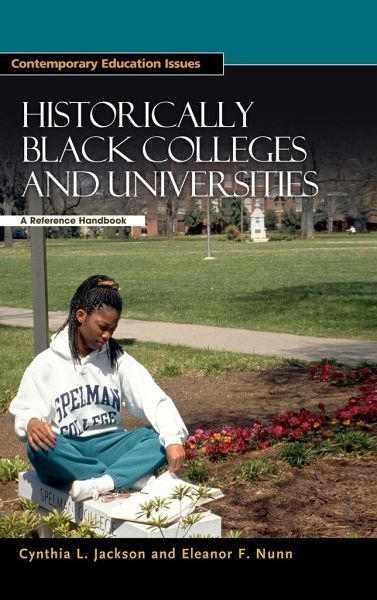
Historically Black Colleges and Universities
A Reference Handbook
Herausgeber: Weil, Danny
Versandkostenfrei!
Versandfertig in 1-2 Wochen
53,99 €
inkl. MwSt.

PAYBACK Punkte
27 °P sammeln!
A highly readable overview of the rich past of historically black colleges and universities, and how their role in higher education is evolving for the future. Historically black colleges and universities (HBCUs) have influenced African American lives and communities since 1837. Historically Black Colleges and Universities provides a past and present look at their role in higher education. This volume addresses why these institutions exist, how effective they've been, and if today's 103 HBCUs are still necessary. Special attention is given to the years since 1954 and to desegregation cases suc...
A highly readable overview of the rich past of historically black colleges and universities, and how their role in higher education is evolving for the future. Historically black colleges and universities (HBCUs) have influenced African American lives and communities since 1837. Historically Black Colleges and Universities provides a past and present look at their role in higher education. This volume addresses why these institutions exist, how effective they've been, and if today's 103 HBCUs are still necessary. Special attention is given to the years since 1954 and to desegregation cases such as Brown v. Board of Education, United States v. Fordice, and other judicial decisions. The volume highlights government relations, leadership, and philanthropy as they apply to HBCUs. Also, a chapter provides a case study of the Historically Minority Universities Bioscience and Biotechnology Program Initiative, and a final chapter suggests research agendas for the 21st century.












